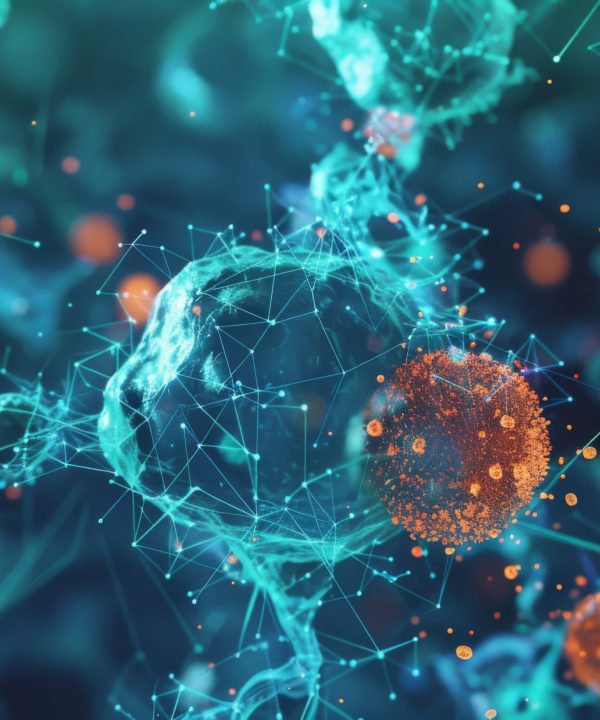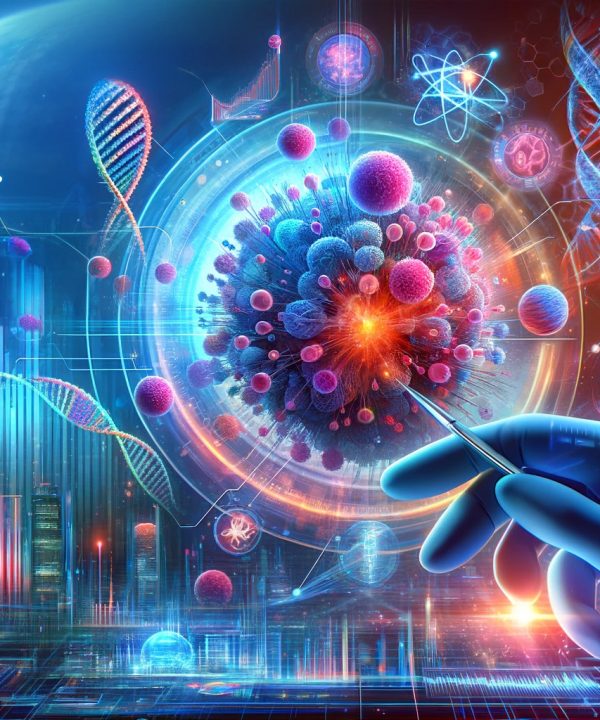RESEARCH & DISCOVERY
Reshape Precision Oncology
explore uncharted territories push science boundaries
Integral Genomic Signature-based Foundation AI Models
We developed a novel class of machine learning methods tailored for multi-OMIC data, known as “integral genomic signature analysis,” which predicts responses to targeted therapy and chemotherapy (Nature Commun., 2022). We are now advancing this with iGenSig-AI, a hybrid model that combines integral genomic signature analysis with artificial intelligence. This technology can perform in silico drug screening to identify the most effective drugs for individualized cancer therapy.
Precision Genomic Markers for Immuno-Oncology
We are advancing the development of precision genomic biomarkers to predict responses to immune checkpoint blockade (ICB) in tumors characterized by low tumor mutation burden (TMB) and/or low PD-L1 expression. One such genomic marker, intragenic rearrangement burden (IRB), has shown promise in predicting ICB efficacy in TMB-low infiltrated tumor entities. Most recently, we reported a groundbreaking metric, tumor-associated antigen burden for evaluating tumor antigenicity in PD-L1-negative patients (in two issues of Cancer Immunology Res., 2024).
Revealing Uncharted Areas in Cancer Genetics
Our most recent research suggests that intragenic rearrangements (IGRs) as the dark matter of cancer genetics, could be one of the most frequent classes of genetic aberrations. IGRs refer to subtle but impactful structural changes within a gene’s sequence, such as duplications, deletions, or relocations of large genetic segments—analogous to rearranging entire paragraphs in an encyclopedia entry. We have consistently identified recurrent IGRs across various cancer types, which could substantially enhance next-generation sequencing (NGS) panels in precision oncology.
20
YEARS OF RESEARCH EXPERIENCE







